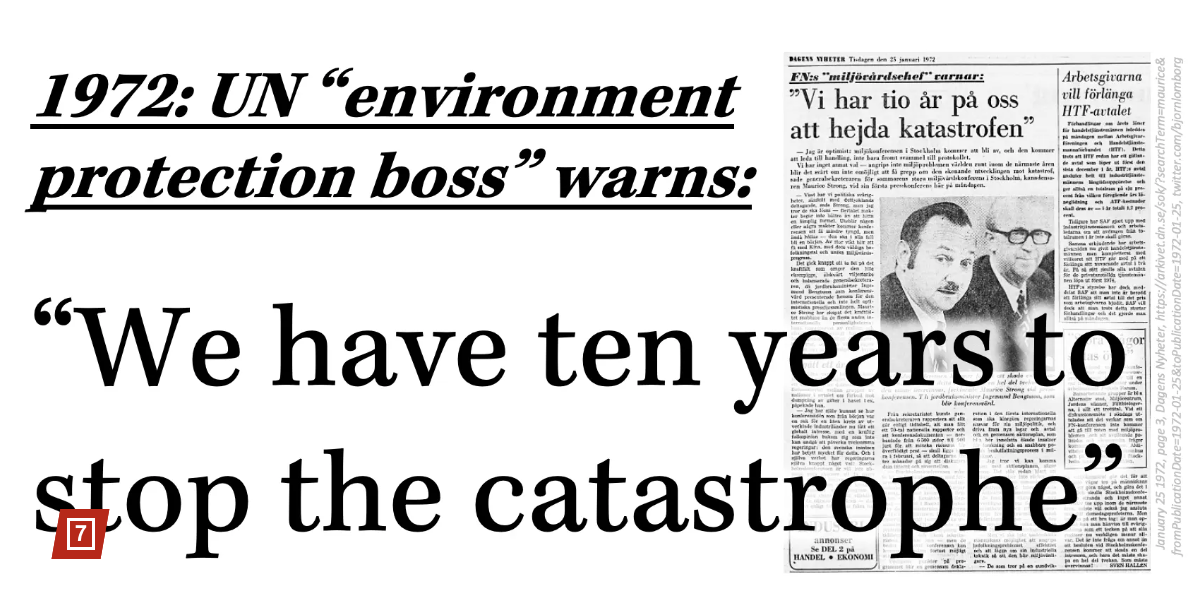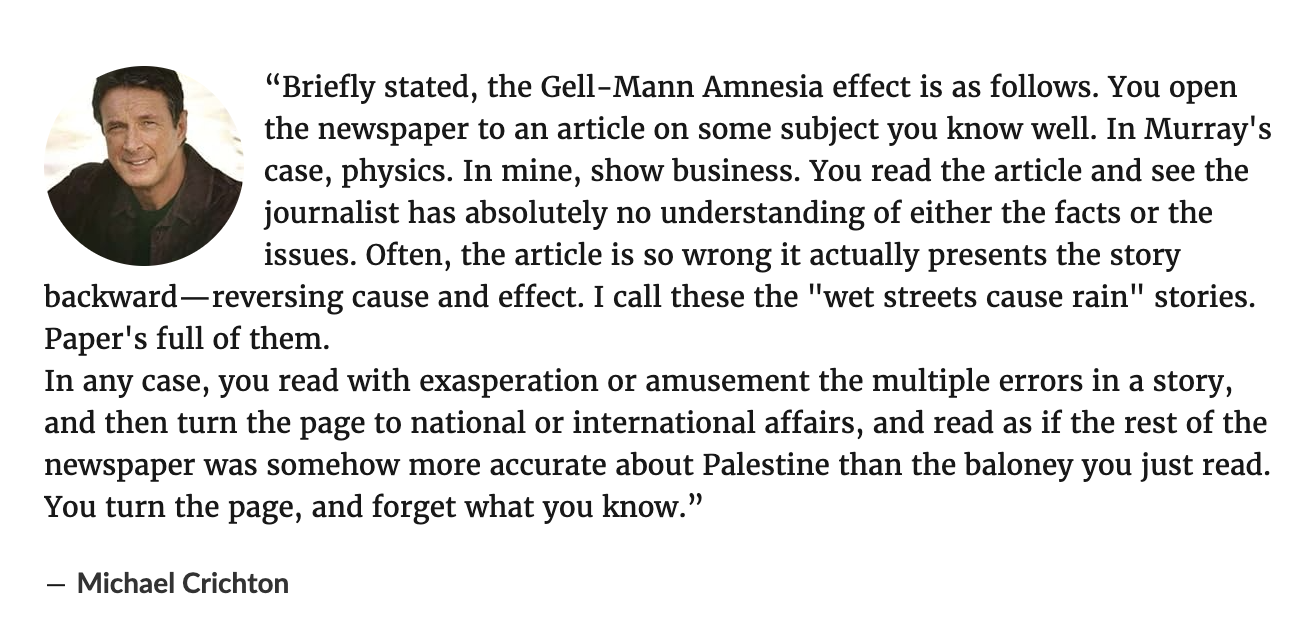This is not really news; more an admission of what they've been doing for years, but it's nice to be reminded of the game plan
/From the same swamp that brought us factual, objective reporting of the Wu Han Panic, this:
Welcome to the Future of Climate Coverage, Where the Journalists Are the Activists
Collin Anderson November 24, 2023
In late September, with hundreds of journalists watching, Covering Climate Now co-founder Mark Hertsgaard began a two-day media conference with a call to arms.
Climate change, he told attendees at Columbia Journalism School, isn't just a "problem" or "crisis." It's an emergency—one that requires breathless, around-the-clock coverage. Think COVID, Hertsgaard said, except it's the planet that's sick.
"We know how to cover emergencies—we cover them a lot. … We saw that during COVID, right?" Hertsgaard said in a session titled, "The State of Climate Journalism: Issuing a Call to Action."
It’s an interesting comparison. During COVID, the press, at the direction of various "experts," ruthlessly policed its own coverage. The possibility that the virus leaked from a lab, now considered the most likely scenario for its emergence, was roundly derided as a conspiracy theory. Those who questioned the utility of paper masks and the costs of remote learning were scorned. And in a cautionary tale about the mainstream media’s approach to "the science," the University of Pennsylvania scientist who pioneered mRNA vaccines spent years in the scientific wilderness, enduring sneers and abuse from the scientific establishment. She just won the Nobel Prize in medicine.
…
Covering Climate Now presses media organizations to "make climate a part of every beat in the newsroom." Its partners include top TV networks and print publications, such as ABC and CBS News, MSNBC, Time, HuffPost, and Vox, and its money comes from the nation's wealthiest liberal foundations, including the Rockefeller Family Fund and the David and Lucile Packard Foundation.
[T]he conference was held at the Columbia Journalism School. Days later, the former Columbia Journalism Review editor and publisher, Kyle Pope, left the publication to join Covering Climate Now full time, but not before plugging the conference. "We are fast approaching the moment when every reporter is going to have to be a climate reporter," Pope said in a Sept. 18 press release. Columbia Journalism School, the release continued, "is leading the charge and challenging the way our climate is currently covered."
…. Pope and others stressed the need to weave climate coverage into "every other story." Perhaps they haven’t been reading the New York Times, which raised the alarm this summer about the impact of climate change on summer camps and linked it to a rise in mental health disorders. CNN warned it may cause a tequila shortage.
On a panel about "Climate Change And The 2024 Elections," journalists from Time, Telemundo, and CBS News worked to swat down the notion that media outlets should present facts for viewers to consider as they "make up their own minds." Instead, former CBS News vice president Al Ortiz said, the press should "get over" their fears of advocating for one political party over another. Climate change is too urgent, he suggested, for Republicans to win another election.
Readers shouldn't expect Covering Climate Now's media partners to report those facts. Under the group's blueprint, green energy's shortcomings—and the policy experts who highlight them—are not to be platformed. Climate change is too important an issue, CBS's Schechter said during a conference panel, to leave the audience "thinking that there are two sides to this story" or a subject of "meaningful scientific debate." Instead, those who argue in favor of oil and gas should be ignored.
And this concluding paragraph:
"We have to make it unacceptable for journalists—even general political journalists—to not ask these questions," Democracy Now founder Amy Goodman] said.
“The average reporter we talk to is 27 years old, and their only reporting experience consists of being around political campaigns. That’s a sea change. They literally know nothing,” Ben Rhodes




